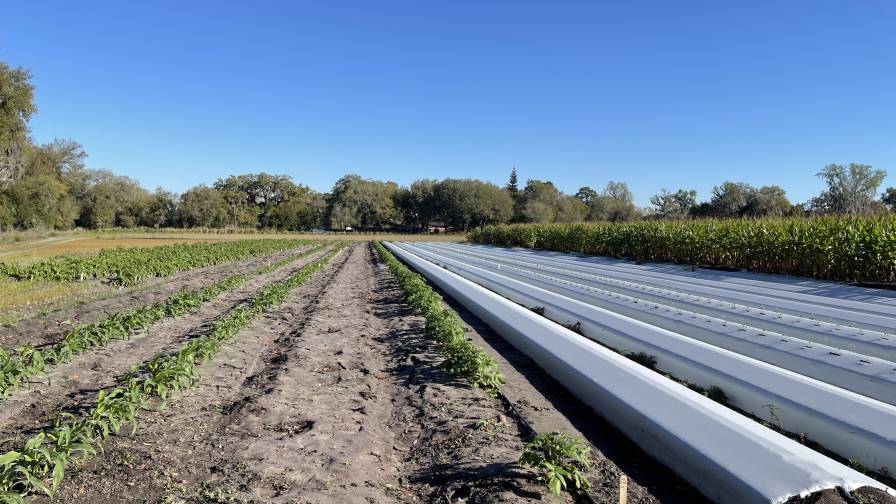Biotech Builds On Breakthroughs
Cool Corn
Every year, growers fight against the forces of nature to maintain or improve their yields. DuPont‘s Pioneer Brand Hybrids for Drought Tolerance not only can survive drought conditions, but also perform competitively if soil moisture conditions improve.
Herculex XTRA technology protects corn roots from rootworm pressure under a range of growing conditions; in University of Illinois trials, Pioneer hybrids with Herculex XTRA performed better than YieldGard VT Triple in very high corn rootworm infestations.
Monsanto‘s hybrid defender against corn rootworms — YieldGard Corn Borer, stacked with the Roundup Ready Corn 2 trait — was approved by the European Union (EU) for use in food and feed.
Unsurprisingly, the bulk of hybrid traits are showing up in corn. Corn has become the crop of choice worldwide due to the ethanol boom, and new offerings take that into consideration. Dow AgroSciences‘ Mycogen brand is a highly fermentable corn hybrid, featuring Herculex XTRA for insect protection and the latest weed control options for increased yield. Dave Schumacher, marketing specialist, Mycogen Seeds, says: “As industry projections predict the demand for corn for ethanol to more than double in the next decade, growers need to arm themselves with high-yielding and highly fermentable corn hybrids.”
Safe Soybeans
Monsanto’s next-generation Roundup RReady2Yield soybean has an improved yield benefit of 7% to 11% over its first-generation Roundup Ready seed. It has completed the regulatory process in the U.S. and Canada, with commercial launch expected in limited U.S. markets in 2009, and nationally in 2010. “In addition to the simple, dependable, flexible, and reliable weed control and crop safety benefits provided by the Roundup Ready system,” says Ernesto Fajardo, vice president of U.S. Crop Production for Monsanto, “growers will be able to improve their bottom line by producing more bushels per acre.”
Monsanto’s portfolio of next-generation soybean technologies includes dicamba tolerant and intrinsic yield soybeans.
Collaborative Quests, Future Fare
Monsanto and Dow AgroSciences are collaborating to cross-license SmartStax, the industry’s first eight-gene-stacked combination in corn, combining eight herbicide tolerant genes with their above- and below-ground insect-protective systems. The resulting hybrids, due for launch by the end of the decade, will include Dow AgroScience’s Herculex I and Herculex RW; Monsanto’s YieldGard VT Rootworm/RR2 and YieldGard VT PRO; and weed control systems Roundup Ready and Liberty Link.
Carl Casale, Monsanto’s executive vice president of strategy and operations, says: “We can provide farmers an ‘all-in-one’ answer to demands for comprehensive yield protection from weed and insect threats.” Dow AgroSciences also estimates a 2012 launch for corn and 2014 for soybeans for traits tolerant to phenoxy auxins like 2,4-D and aryloxyphenoxypropionate “fop” grass herbicides.
Retailers expect to once again sell more corn. Mark Powell, Brandt Consolidated seed sales manager, says that 2008 demand is for triple stacked corn. Brandt will mostly carry Monsanto brand hybrids, with a couple of ASI companies. Powell explains: “Our three leading hybrids are DKC 61-69, DKC 63-42 and RX 785VT3. The refuge is in a straight RoundupReady hybrid, just like the Yield endorsement by the federal crop insurance, the triple stacked is another way for the farmer to reduce his risk.”
Between GM hybrids already on the market, trait-sharing among the biggest companies, and new varieties in field trials, 2008 looks to be another profitable year for growers and seed companies alike.





